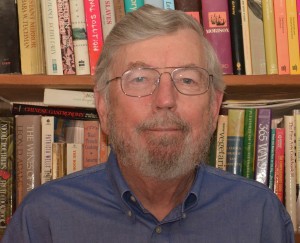As one of your Councilors, I attended the national ACS meeting in Philadelphia in August. My meetings included the CEPA (Committee on Economic and Professional Affairs) Executive Committee on Friday evening, CEPA all day Saturday, the Graduate Education Advisory Board (GEAB) on Monday morning, and of course the Council meeting on Wednesday. I also checked out the exposition, but alas, did not score any tee shirts this time.
The most interesting presentation during these meetings was given by Russell Harrison, the Director of Government Relations for IEEE, the largest organization of electronic and computer professionals in the US. He spoke on the problems of the H1B visa program as it currently exists. The basic conclusions are that it is used as a way to supply inexpensive labor to US companies, and also to help train people to export jobs to countries such as India and China. There are good reasons for H1B type visas to exist, but Russ was careful to point out possible abuse of the program.
Since I am the Chair of the CEPA Subcommittee on Public Policy, the conversation on H1B visas was continued in that venue, with the result that the Subcommittee will be gathering more information about the situation in the coming months, with the goal to recommend possible action to CEPA, and by extension, ACS, before the next national meeting in San Francisco.
The Subcommittee also reviewed and approved a slight revision to the Employment Non-Discrimination policy statement, which was subsequently approved by the full CEPA group, and it will be sent on to the ACS Board of Directors for final approval.
GEAB’s focus was two-fold. Quite a bit of time was spent on reports of the student run symposia at each of the National meetings, which have been very successful. I was impressed again at how much work these grad students do to arrange the symposia, including a very good slate of speakers, and also how successful their fund raising efforts have been, bringing in funding from multiple sources.
The second emphasis was on the Individual Development Plans that GEAB has been promoting, along with ACS, for graduate students, to assist in planning their careers. The tool that ACS has developed is now being used by more than 900 registrants, with the hope that many more students will sign up in the near future.
The Council meeting was relatively uncontroversial for a change. A petition to extend the unemployed members dues waiver to three years was passed unanimously. A major revision to the Chemical Professional’s Code of Conduct was passed, with the caveat that some concerns about safety issues would be addressed soon. The CPCC had been considered and passed by CEPA earlier in the week, with extensive discussion about the safety issues.
As usual, if you have any questions or concerns about any of these issues, please email me at jrberg@ucdavis.edu. Thanks!

